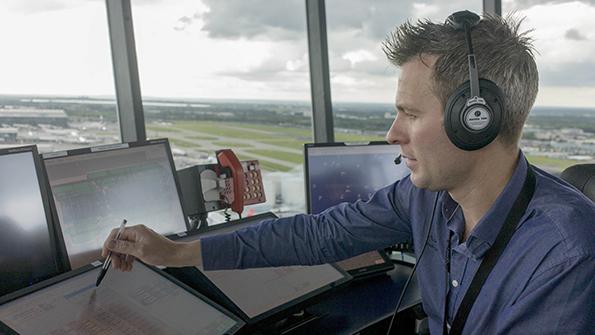Opinion: How Incomplete Language Standards Threaten Aviation

Nearly 20 years after English language testing requirements for pilots and air traffic controllers were introduced by the International Civil Aviation Organization (ICAO), language continues to threaten global aviation safety.
“We are now at takeoff.” That ambiguous communication preceded the 1977 runway collision at Tenerife, Spain, and focused industry attention on the importance of communications.
“We just running out of fuel” captures the failure of an English-as-a-foreign-language flight crew to communicate the urgency of their low-fuel status to busy native-English--speaking controllers at New York’s John F. Kennedy International Airport in 1990.
Not every language-related accident involves air traffic control. Threat and error management require clear communication between all members of a flight crew. The crash of Helios Airways Flight 522 into a Greek mountainside illustrates how poor multilingual flight deck communications can have tragic consequences. Investigators described unsuccessful communications between the German-speaking captain, his Greek--speaking first officer and their British ground engineer. “Language difficulties prolonged resolution of the problem,” they concluded. The crew could not effectively troubleshoot a warning horn and did not notice a pressurization switch set to manual instead of automatic, resulting in 121 lives lost.
The impact of English on safety in aviation is pervasive, and limited English proficiency is insidious and sometimes difficult to discern. As part of the team that developed the ICAO language proficiency requirements adopted in 2003, I believe the standards have been successful in increasing industry awareness of the risks to aviation safety from inadequate English proficiency. The ICAO language standards were a necessary and important first step.
But challenges remain. Global aviation is still struggling to comply with the ICAO language standards, which address only speaking and listening proficiency requirements for pilot and air traffic control radiotelephony communications. The standards do not address the more intensive oral communications required for multilingual flight deck communications or for flight training in English. There are no ICAO language standards for maintenance technicians, and there are no ICAO reading proficiency requirements for pilots, controllers or maintenance technicians.
Airplanes are increasingly complex machines. Pilots and technicians learn to operate, maintain and repair aircraft by reading complex manuals not written for an English-as-a-foreign-language audience. A recent industry focus on pilot training to better manage complex automation—and train for high-altitude upset recovery and other critical aspects of flying—should also account for aircraft piloted and maintained by people who use English as a foreign language.
Today, more than 80% of all accidents can be attributed to human error. Experts acknowledge that improving the excellent safety record in aviation requires the more difficult task of improving human performance. Raising the English language proficiency level of pilots, air traffic controllers and maintenance technicians through global access to safety-focused aviation English curricula is the single most effective measure the industry can take.
Embry-Riddle Aeronautical University is addressing these issues through support for its Language as a Human Factor in Aviation initiative. We are focusing first on the development of English for Flight Training and English for Air Traffic Control curricula as well as an online assessment tool and research to improve industry understanding of language as a factor in aviation safety.
The next critical step to raise global levels of English language proficiency is industry-academic collaboration. Aviation-focused academic institutions like Embry-Riddle can bring state-of-the-art language teaching expertise to curriculum development, and businesses excel at agile response. Safety and fairness additionally require the objectivity and credibility that characterize not-for-profit academic institutions.
No industry has done more to make the world smaller than aviation. We share a single airspace. Language in aviation is a worldwide problem that can and should be solved through global collaboration.
Elizabeth Mathews is an assistant professor of aerospace and occupational safety at Embry-Riddle Aeronautical University and co-author, with Eric Friginal of Georgia State and Jennifer Roberts of Embry-Riddle, of English in Global Aviation: Context, Research, and Pedagogy.
The views expressed are not necessarily those of Aviation Week.


Comments